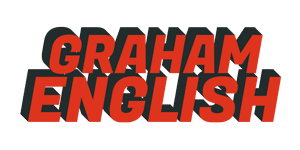
As a certified Tiny Habits coach, I've seen firsthand the power of small, consistent actions in creating lasting change.
Research shows that 45% of our daily behaviors are based on habits, making them a critical factor in achieving personal and professional success.
With this in mind, I want to share seven powerful tiny habits every musician should adopt today to improve their skills, boost their confidence, and accelerate their career growth.
Daily Focused Practice Sessions
Consistency in practice is crucial for musicians looking to improve their skills.
Breaking practice sessions into smaller, focused chunks increases engagement and productivity.
Consider using the Pomodoro Technique, which involves working for 25 minutes and a 5-minute break. Repeat this process until the desired practice time is completed.
Practice Tips
- Set specific objectives for each session
- Warm up with scales and technique exercises
- Alternate between learning new pieces and polishing existing repertoire
- Record practice sessions for self-evaluation
Active Listening to Diverse Music Genres
Expanding musical horizons through active listening and analyzing different genres is vital for growth. Engaging with a wide range of styles and approaches enriches creativity, inspires new ideas, and enhances overall musicianship.
Techniques for Active Listening
- Create a diverse playlist, including genres outside your comfort zone
- Analyze elements such as melody, harmony, rhythm, and dynamics
- Take note of unique instrumentation or production techniques
- Consider listening to live performances to understand better how musicians interact
Incorporating Mindfulness and Relaxation Techniques
A solid mental foundation directly influences musical performance. Breathing exercises, meditation, and visualization are practical tools to help musicians maintain mental well-being and combat performance anxiety.
Mindfulness for Musicians
- Incorporate mindfulness practices into your daily routine
- Utilize visualization techniques to mentally rehearse challenging passages
- Experiment with different relaxation methods, such as progressive muscle relaxation or autogenic training
Networking and Community Engagement
Building connections within the music industry is essential for career growth. Attending workshops, conferences, and events opens doors for collaboration, mentorship, and networking opportunities.
Effective Networking Tips
- Create a professional online presence (website, social media profiles)
- Be genuine and authentic in interactions
- Offer value and support to others
- Follow up with new connections to maintain relationships
Setting SMART Goals
Establishing specific, measurable, achievable, relevant, and time-bound (SMART) goals guide musicians toward focused progress and quantifiable success.
Examples of SMART Goals for Musicians
- Learn a challenging piece within two months
- Increase metronome speed on a technical exercise by 10 BPM in three weeks
- Obtain five paid gigs within six months
Tracking Progress and Staying Motivated
- Maintain a practice journal or spreadsheet to record progress
- Celebrate milestones and achievements
- Adjust goals as needed based on personal growth and career aspirations
Recording and Evaluating Performances
Self-assessment through recording and evaluating performances provides invaluable feedback. By identifying areas for improvement and celebrating achievements, musicians can refine their skills and build confidence.
Recording and Evaluation Tips
- Use smartphones or digital recorders to capture performances
- Listen critically, focusing on aspects such as intonation, phrasing, and tone quality
- Implement feedback from trusted mentors or peers
Prioritizing Physical Health and Wellness
Physical health directly impacts musical performance. Exercise, proper nutrition, and adequate sleep are essential for optimal performance.
Tips for Musicians
- Incorporate regular exercise into your daily routine
- Adopt a balanced diet and stay hydrated
- Prioritize sleep and develop a consistent sleep schedule
- Practice proper posture and body mechanics to prevent injuries
Choosing the Right Habits for Individual Needs
Musicians must assess their strengths, weaknesses, and career aspirations to select the most effective habits. Experiment with different habits to find the ones that yield the most significant benefits.
Incorporating Tiny Habits into Daily Routines
Consistency is critical to forming lasting habits. Utilize habit-tracking tools and apps to monitor progress and overcome challenges.
By following this graph, musicians can build a comprehensive approach to personal and professional development. Implementing these powerful tiny habits in daily routines ensures that musicians continually strive for excellence, ultimately resulting in improved skills, boosted confidence, and accelerated career growth.
Adopting these seven powerful tiny habits can significantly impact musicians' long-term success.
Starting today, musicians should invest time and effort in daily practice, active listening, mindfulness, networking, goal setting, performance evaluation, and prioritizing physical health.
As musicians progress and grow, they will find the optimal combination of habits that best support their individual needs and aspirations, leading to a rewarding and successful career in music.

